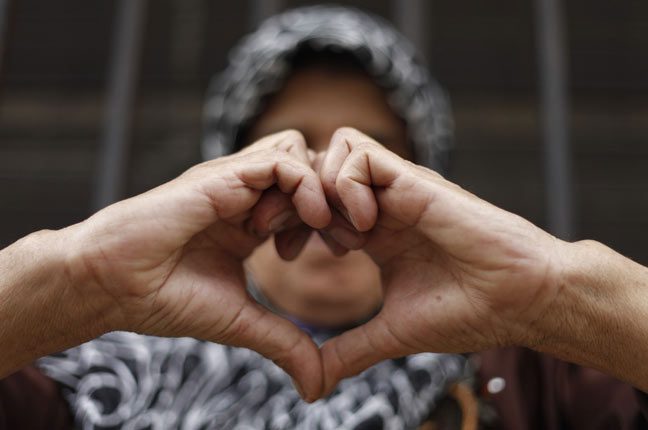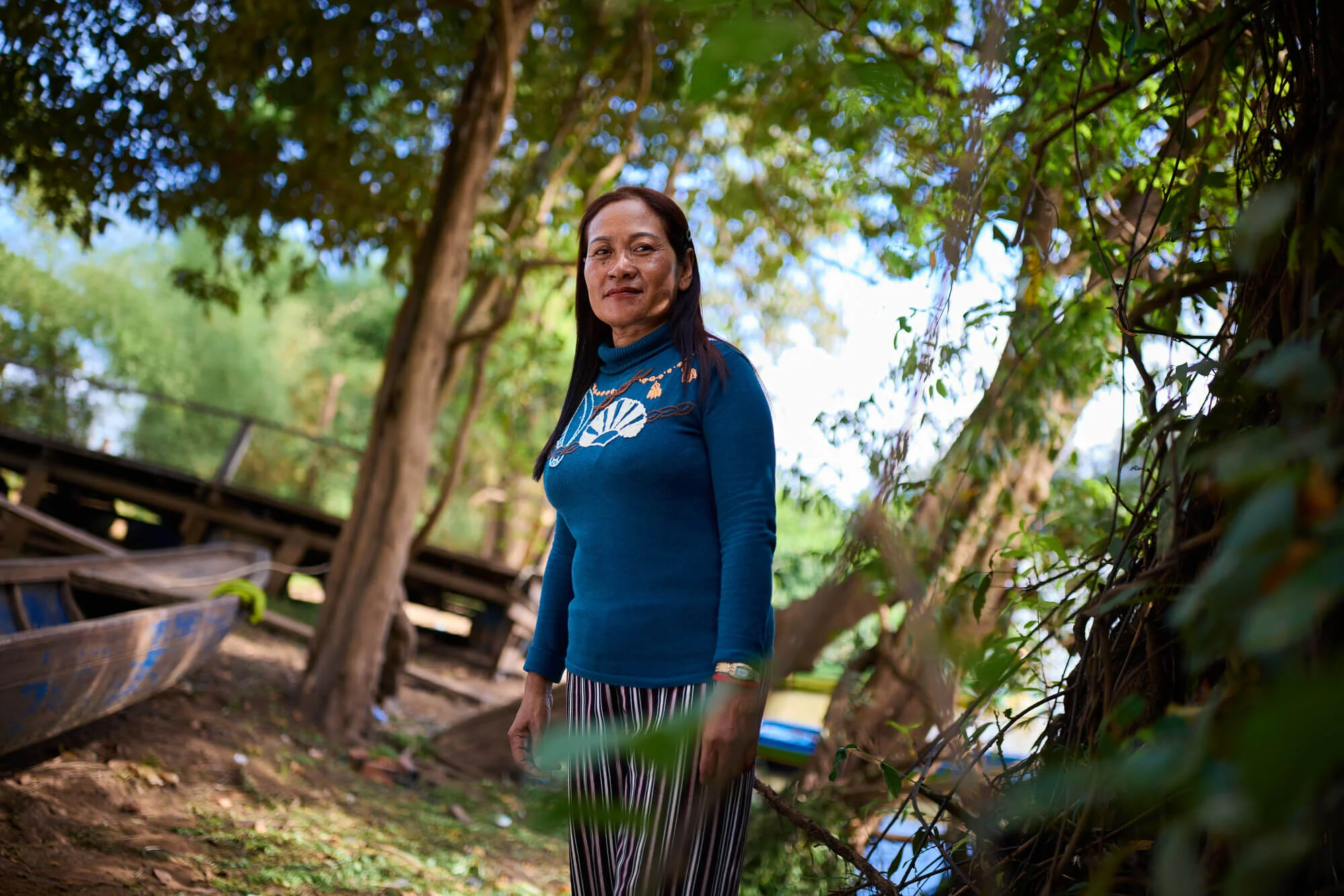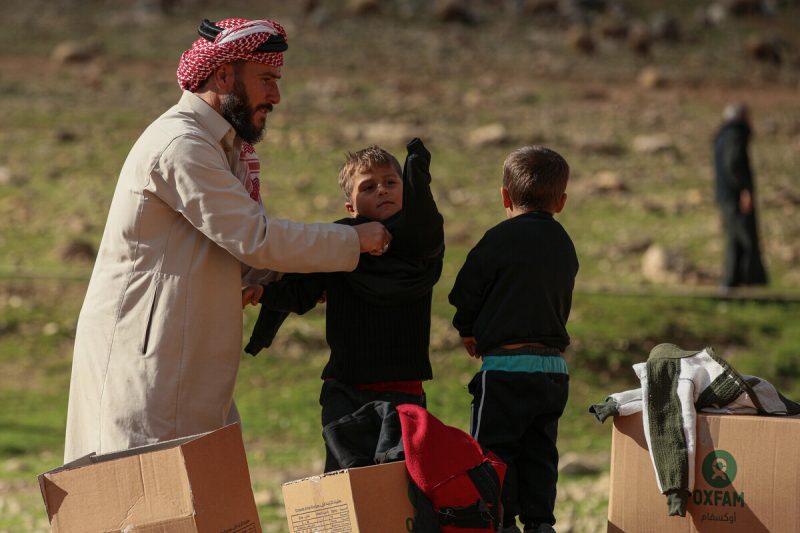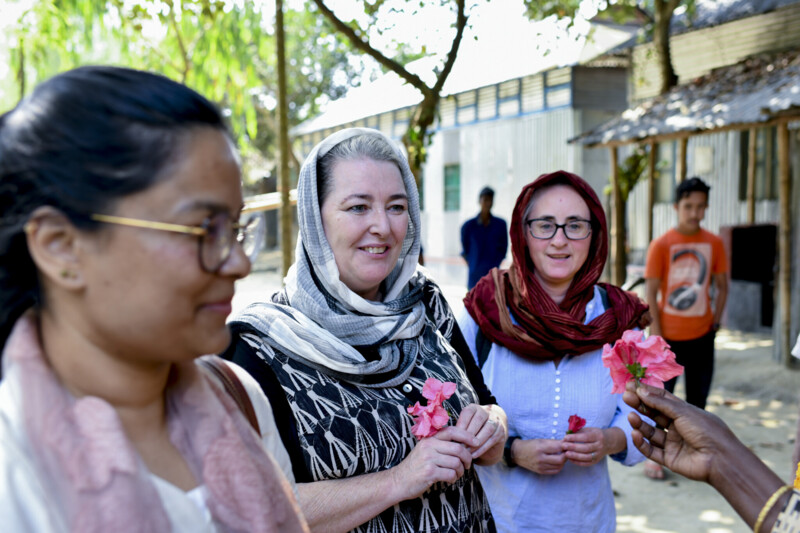Khadija, who chose to give us a false name and cover her face for fear of reprisals when she returns to Syria, fled to Lebanon two months before this picture was taken on May 4, 2013, after being displaced numerous times within Syria by fighting between opposition and regime forces.
She now lives in a bare room in a building that’s still under construction in Qalamoun near Tripoli, for which she is charged $70 a month by the building’s owner. To get to her ‘room’ you must walk past piles of sand and rubble. There is no door or glass in the windows and she has hung pieces of material and plastic to provide some privacy and protection from the weather. Her only furniture is a mattress, a rug and an oil drum.
Khadija told Oxfam, “The owner of the house is now asking for the rent on a daily basis and I beg, ‘Please be patient I don’t have the money at the moment.’ I don’t want to sleep on the street.”
Khadija is one of the 50,000 Syrian refugees who will receive financial help from Oxfam to pay her rent over the next two months.
“I’ve been in Lebanon for two months,” Khadija says. “Before we came to Lebanon we were moving from one place to another. When the fighting and shelling got too heavy we would move to another village until the fighting and shelling got too heavy there. Eventually we had no choice but to go and live in a place underground. There was no electricity. It was dark all the time and very frightening but if we hadn’t hidden there I think we’d all be dead by now because of the fighting. Then the Syrian Air Force started bombing in that area. That’s when we finally decided to leave Syria and we fled to Lebanon.
“Here we have no money to spend. We have to rely on other people to help us a little with whatever they can spare. The winter here was very bad. It was very cold. We had no stove to keep us warm. We slept on the floor with no mattress and no blankets. I’m not married so I can only ask for help from Allah. I came here with some relatives. They are not close relatives; a nephew and his wife and children. They live in a room next door.
“I have no idea about the rest of my family. One of my brothers has already been killed but what has happened to my sisters, uncles, and aunts I just don’t know. I don’t have a mobile phone so I have no way to communicate with them. I spend my timing worrying and thinking about them. I’ve no idea about what is happening in Syria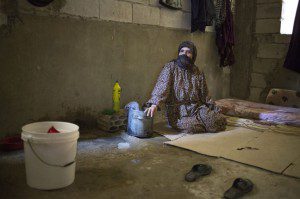 .
.
“I sleep here in this room. What can I say? Living and dying in such a place as this is just the same. Yes, living in this room feels like I’m dying in this room. I feel like I’m sleeping in a grave. The only difference is that in a grave you are alone and here there are people, but it is better than sleeping in the street.
“Before the fighting we used to have a good life with a good clean house. Now look at where I’m living. I never imagined this would happen to me. I never imagined this would happen to any of us.
Oxfam is giving Khadija, and others like her, $150 per household per month for two months. These will be one off payments for new arrivals from Syria to help them pay for accommodation. Up to 150,000 people will also be receiving vouchers for food and hygiene items.
When Khadija learned that she would be able to pay her rent, she said, “I’m very touched by your actions and open heart. It makes me feel fantastic when I see that people like you are taking care of people like us.
“I hope your loved ones are surrounding you all the time. We are very far from our loved ones and ones who care for us. We are not able to communicate our thoughts and feelings to them because we don’t have a phone.
“I hope Oxfam, and organisations like Oxfam, can give assistance to those in Syria as well. There are many more people in Syria who are in need as well as the refugees who are now in Lebanon. Your work lifts us from darkness and into the light – it helps us a lot to see you care.”
We are aiming to help 650,000 people affected by the Syrian crisis by the end of 2013, however our work is less than 20% funded. We still very much need your support.
You can help refugees like Khadija by donating to our Syria Crisis Appeal today. Donate now
